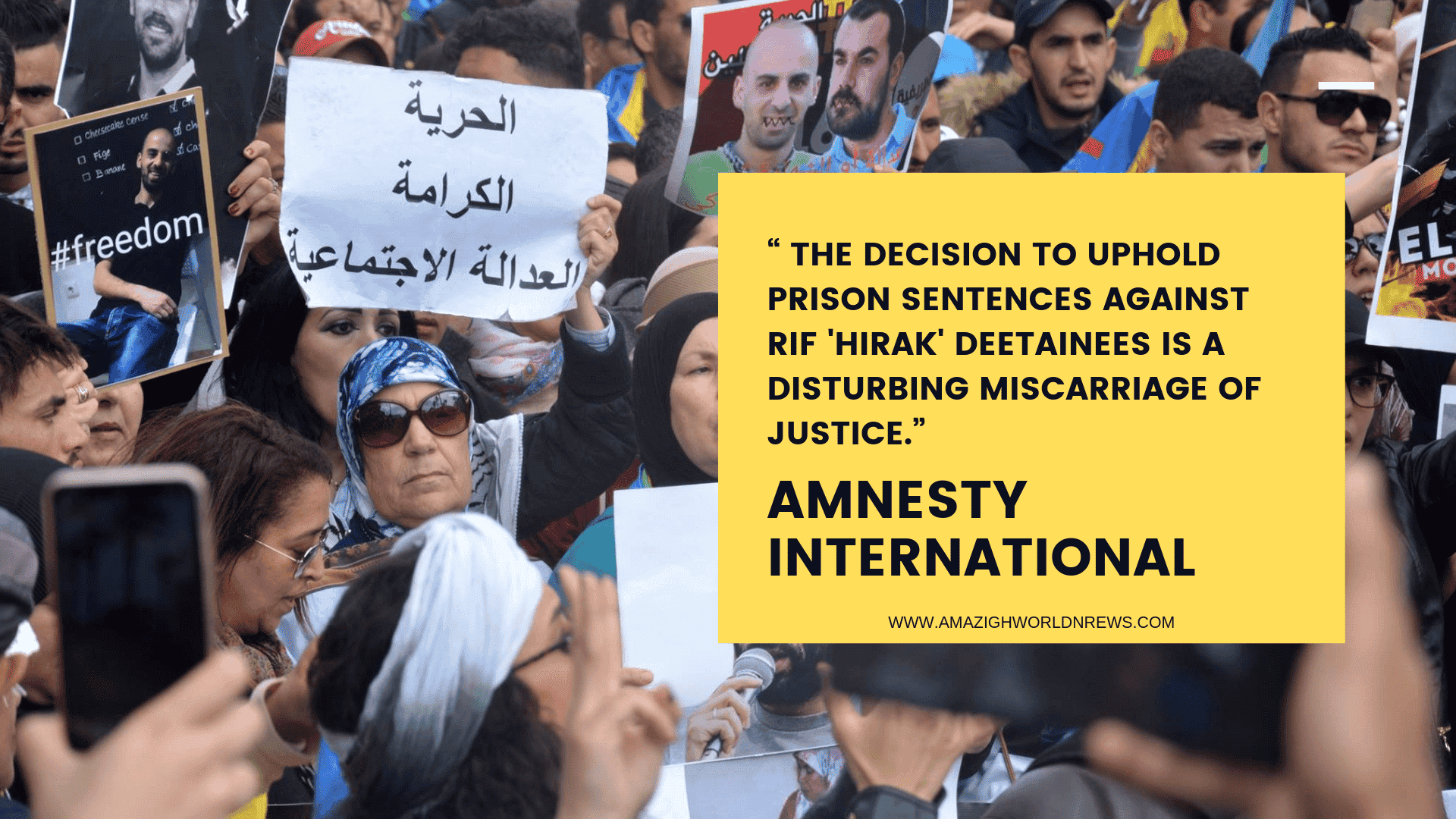In a statement published April 26, Amnesty international says the decision on 5 April by a Casablanca court of appeals to uphold prison sentences against Rif Hirak detainees is a “disturbing miscarriage of justice.”
The court has endorsed the sentences by the court of first instance for up to 20 years against 43 men for their involvement in the Hirak El-Rif protests that took place in Morocco’s neglected northern Rif region throughout 2017.
[ads1]
In December 2018, Amnesty International expressed concern that several convictions were based on “confessions” extracted under torture and that the trial had been marred by other human rights violations, including arbitrary arrests, the obstruction to the right to inform the families of the arrest, hindrance in access to legal counsel, and prolonged solitary confinement in at least seven cases. Defence lawyers were not granted access to available evidence in order to prepare their defence, and the court refused to accept statements from more than 50 defence witnesses without providing adequate reasons. Further, the access of media and civil society to the courtroom was hindered, undermining the right to a public hearing.
Amnesty international is particularly dismayed that judges failed to exclude as evidence in the trial statements that the defendants said had been extracted under torture and other ill-treatment, in breach of Morocco’s obligations under international human rights law. According to lawyers interviewed by Amnesty International, at least three people reported allegations of torture and other ill-treatment, including heavy beatings, suffocation, being forced to strip their clothes, rape threats and insults, inflicted by police upon arrest and during interrogation, to force them to “confess” to crimes they had been denying committing or to punish them for personal disagreements unrelated to the protests. According to other sources, at least nine other defendants alleged torture and other ill-treatment in either police custody or in prison.
[ads1]
Amnesty International is further concerned about some of the charges brought against the defendants, which range from “organizing unauthorized demonstrations”, “holding public gatherings without permission”, “open incitement against the territorial integrity of Morocco” to “insulting an official body and law enforcement officials”. Such charges are inconsistent with Morocco’s human rights obligations since they criminalize and unduly restrict the peaceful exercise of the rights to freedom of peaceful assembly, association and expression. The organization also considers that other charges lodged against the Hirak El-Rif defendants were in most cases excessive and were not justified by their actions, which related to their alleged role in the protests and, in some cases, ensuing clashes with security forces.
Finally, Amnesty International continues to be concerned about the recent transfer of the defendants to prisons in Fes, Tangiers, Nador, Tetouan and Al Hoceima located in remote areas that are not easily accessible, which is making it more difficult for their families to visit regularly.

